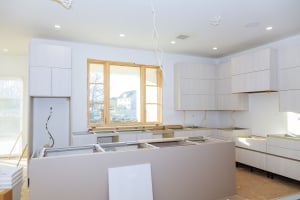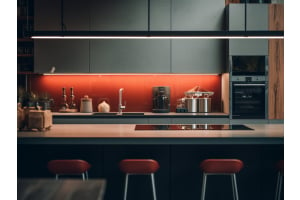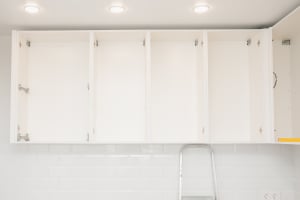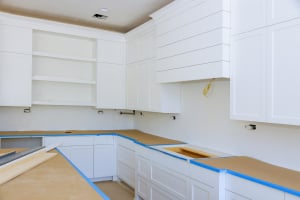Interior doors with glass panels have long been used for home entryways, particularly as a patio entrance. They’re sleek and airy, offering a view of the outside while letting a ton of light into the inside.
This is what makes them an energy-efficient option. Because of their ability to naturally illuminate a space, they lessen the need for artificial lighting and extra heating.
Why Is Energy Efficiency Important?
The energy efficiency of a home affects your monthly electricity bills and your environmental footprint. An energy-efficient space uses less energy to keep it livable, which also reduces how much byproduct is emitted to the environment.
Are Glass Doors Energy Efficient?
Glass doors are energy efficient, making them an ideal choice if you want a greener home. This is true even if you’re working with frosted doors, so if you’re getting into how to frost glass door panels, go for it!
That said, not all glass doors maximize their energy-efficient features–efficiency depends on several factors that make up your doors. Still, most door manufacturers and suppliers now commonly install elements that increase this characteristic, so you can rarely go wrong.
Factors That Affect the Energy Efficiency of Glass Doors
There are a variety of glass doors to choose from, and these can vary in their level of energy efficiency. Let’s break down the factors that affect the energy efficiency of glass doors so you can find the right one for you!
Frame Material
While the majority of glass doors will be made up of panes, the surrounding frame material plays an important part in its energy efficiency, along with its durability. The most insulating materials are fiberglass and vinyl, with wood coming in at a close third. Aluminum isn’t as energy-efficient, but aluminum frames are great for their strength and are preferred in hurricane-prone areas.
Glazing and Coating
The glazing and coating that you choose for your sliding doors will significantly impact its energy efficiency. You can double or triple-glaze your doors–the thicker the glaze, the higher the energy performance. You may also opt for a wet-glazed (or bonded) system, which means that the glass and the frame are provided as one unit, increasing its weather tightness.
For further insulation, you can look for glass doors coated with a low-emissivity coating, which reflects heat either indoors in the winter or outdoors in the summer.
Panes
Double-paned glass tends to be more energy-efficient because it doesn't leak out cold air during warmer temperatures. Still, you also need to consider the space between panes, as this could affect how the door inhibits heat loss.
Installation
How your glass doors are installed also impacts their energy efficiency. Make sure that there are little to no gaps in fixtures or frames to prevent external air from coming in and heat from your home from escaping.
Manufacturer
Rely on reputable manufacturers and suppliers like 27estore to source your glass doors. That way, you can rest assured that you’re getting energy-efficient entryways that are made with high-quality materials and skilled craftsmanship.
Energy-Efficient Glass Doors from 27estore
Whether you’re fitting your patio or other entrances in your home, 27estore has premium glass doors for you. Check out the catalog to invest in top-quality energy-efficient glass doors today!
Wondering what the standard interior door height is? We’ve got you covered–check out our latest article!













